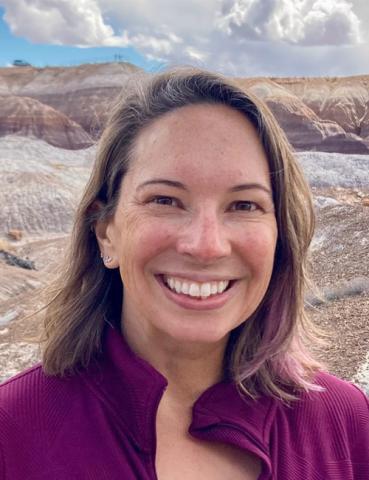
Pitfalls & Epiphanies is a new faculty lecture series hosted by the University of Oklahoma Libraries. We’re excited to share this lecture series with everyone – from students and faculty to the broader community – hoping it will enhance your understanding and appreciation of real-life research experiences.
On November 12 from 4-5 p.m. in the Bizzell Memorial Library LL118 Community Room. A brief reception will follow the lecture. Dr. Heather Bedle is presenting “Transforming Faults: Embracing detours and setbacks on an academic journey.” Dr. Bedle will review her unconventional career path of a physicist-turned-geologist-turned transdisciplinary researcher, highlighting the pivotal moments of insights, challenges, and failures that shaped her scientific career. From early work in radar systems to research in seismic data and machine learning to, most recently, investigating the social dimensions of climate solutions, she illustrates the unexpected detours that can define a researcher's path. The presentation will explore how personal values, intellectual curiosity, and a commitment to mentorship can drive scientific innovation and spur academic growth. By examining the evolution of research from her early careers to her current AASPI research group and SPEER initiative, she'll discuss the importance of adaptability, persistence, and interdisciplinary thinking in modern science. This talk aims to encourage researchers at all career stages to embrace challenges, learn from failures, and remain open to new directions in their academic pursuits.
Dr. Heather Bedle is an Associate Professor, Edith Kinney Gaylord Presidential Professor, and Lissa and Cy Wagner Professor of Geosciences in the School of Geosciences at the University of Oklahoma. As PI of the Attribute Assisted Seismic Processing & Imaging (AASPI) Consortium, she is passionate about mentoring aspiring scientists and exploring the complex intersections of earth, energy, and environment. With a Ph.D. from Northwestern University, she combines her industry and academic experiences to lead a prolific research group recognized for their interdisciplinary approach, employing methods that revolve around data science and machine learning, and using a variety of data from reflection seismic, earthquake, shallow crustal geophysical methods, and social survey data.
For questions about the lecture or for accommodations on the basis of disability, please contact amanda.schilling@ou.edu or libpr@ou.edu.